Compost
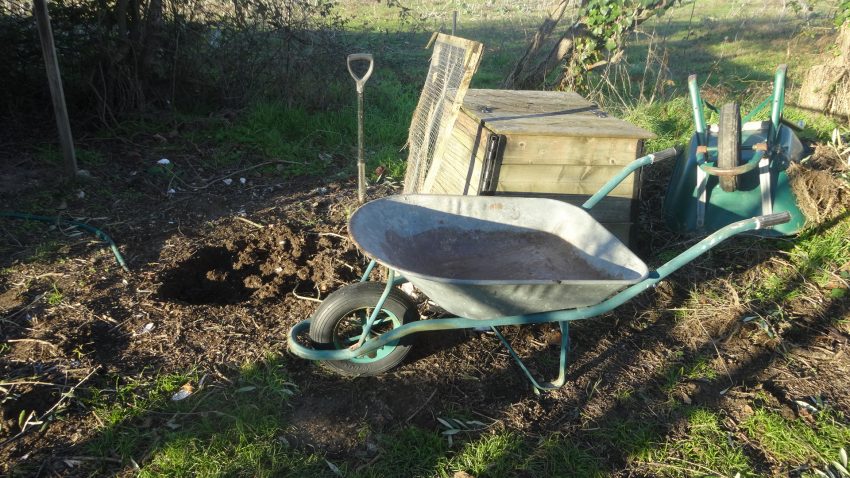
It’s a sunny winter’s day in my garden and I’m busy digging compost for my raised vegetable beds. I’m doing a job that gives me great pleasure. I’m outdoors, the weather is kind enough, the air is fresh and the sun is bright. My fork goes easily into the ground to loosen the earth and my woman-sized spade lifts the dark friable soil easily. I chuck it onto the wire mesh resting over my wheelbarrow and scrape away until it all falls through leaving only bones and the occasional bits of plastic trapped by the mesh. There are many more bones than plastic. Interesting, I think. Gardening is physical philosophy and I’m an amateur – a lover that is – of philosophy and ecology but also a debutante who is always learning. I wonder if the production of bones isn’t the actual purpose of human life. They are the end product of human life after all and they do last thousands of years.
Hear the word of the Lord.
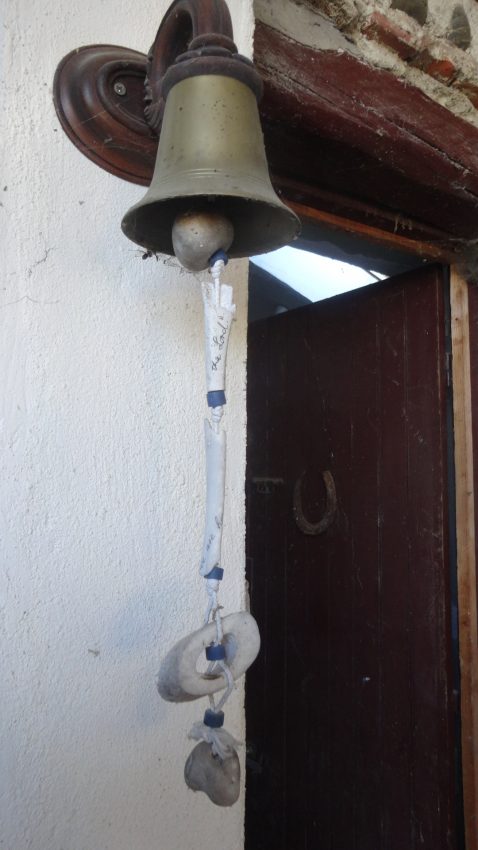
Dem bones, dem bones gonna rise again. Dem bones, dem bones gonna rise again.
Dem bones, dem bones gonna rise again. Now hear the word of the Lord.
Dem bones, dem bones, dem dry bones. Dem bones, dem bones, dem dry bones.
Dem bones, dem bones, dem dry bones. Now hear the word of the Lord.
These words are from a Spiritual written by James Weldon Johnson (1871–1938) and his brother, J. Rosamond Johnson.[1] and come from Ezekiel Ezekiel 37:1-14,. Ring the doorbell outside my back door – the bell-pull is made from hollow bones and written on them are the words – Hear the word of the Lord – and – We are on earth to grow bones. Dark gothic thoughts perhaps or are there bony slivers of truth in it? Comments below, please. and you can listen to the song here.
Digging the dirt
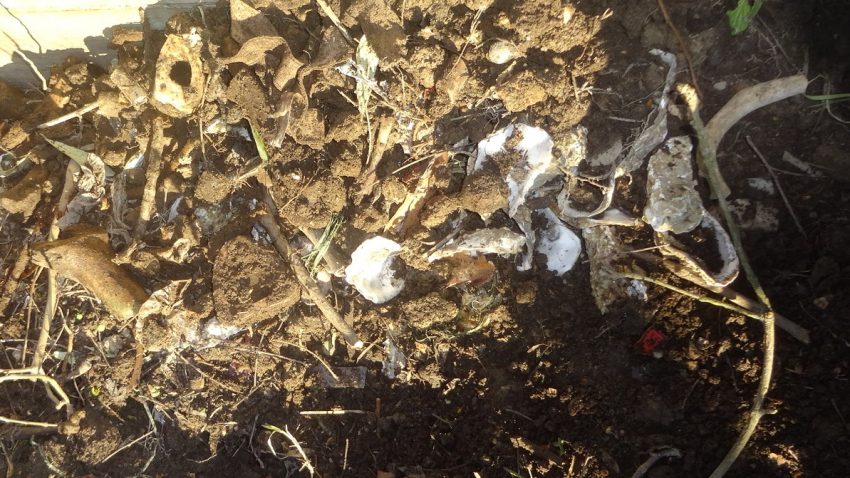
I’ve been an enthusiast about organic and sustainable farming for 55 years. In 1969 when I loved in London, Lindsay Loxton gave me a book about composting but I was already convinced by Rachel Carson’s book Silent Spring. Every garden I’ve ever made has had a compost heap, I try to use water carefully and I don’t use pesticides or herbicides. Compost and kitchens go together naturally and so does frugal housekeeping and avoiding plastic. I live in a tiny rural village and I buy cheap cuts of meat from our local butcher – beef shin, lamb shoulder or neck, and ham knuckles. When the cats have tidied up what is leftover from the stew I cooked, the well-licked bones go out to the compost heap with the vegetable peelings. Yes – I know that is supposed to attract rats but so far, I’ve only seen mice, voles and the scat from a marten around it. Right now, I’m digging up the bottom of my 10-year-old compost heap and I’m piling up almost enough bones to make into a whole human-sized skeleton! Should I be thinking of its resurrection?
What are we made of?
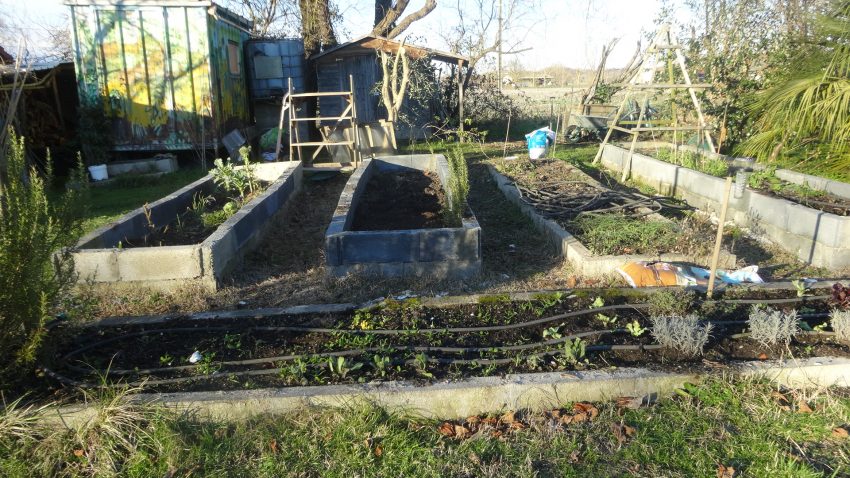
If the bones in my compost heap were resurrected into one creature it would be very odd looking indeed. A Manx Island creature with many legs and no head and presumably no human parts. As yet I haven’t made head cheese and I do ask my butcher not to give me the rabbit’s head. He thinks the rabbit is poor value without that! The truth is that the humans in my house live by eating other animals. So – if there are no human components in my compost heap apart from a little of my sweat what am I? A creature who survives by consuming animals and the plants that feed on animals? We are all linked and interdependent. If all life on our planet is made of stardust (including inanimate objects like rocks and sand) then what parts of it can – or ought to be – differentiated into good and bad, sacred and profane? Could it be that everything we do is a sacrament and everything we eat is sacrificial and our slow transformation after death into bones is an acknowledgement of our shared stardust?
What’s left behind when we go, go, go?
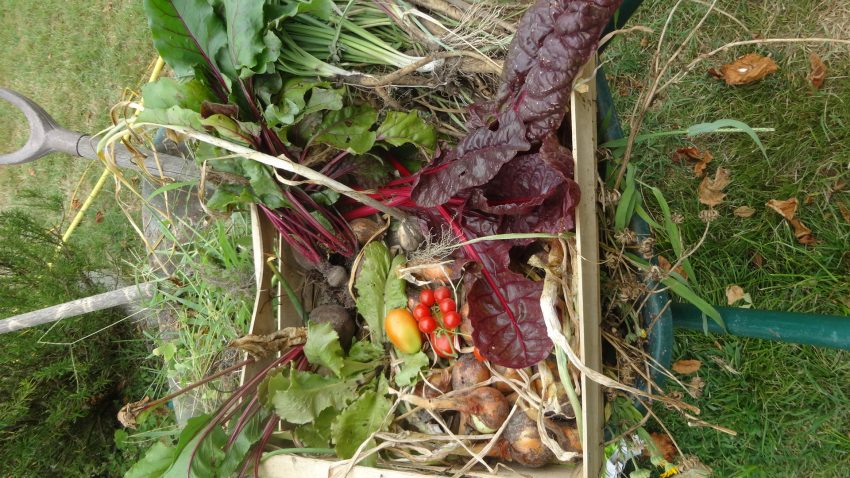
It’s so easy to fall into cliches. Did you notice I said “when we go” and not “when we die”? As my garden fork sinks into my compost heap, I wonder why we believe that some ethereal element of us will live on when our flesh and blood parts from our bones? Are we sure that something of us will continue to exist beyond the energy generated by our physical bodies? What is the soul? Does each human have a soul? Will it exist for eternity or fade once it’s forgotten? Do ancestors live as long as they are remembered? Is Heaven divided into sections for different religions and are there hierarchies in Heaven? Some religions don’t think we have an immortal soul and some think we will need to have our dry bones obey the Word of God and live again so that we can enter eternity. So I dig, and I plant and I watch things grow and I think those are the miracles of life that feed our souls.
2 Comments on “We are on earth to grow bones”
Dear Ruth, thanks for the touching text and photos. Susan
Dear Susan – I’m the one who is touched to learn that you read my posts – I hope that perhaps we can talk about this subject when we next meet – hopefully not on Zoom! Ruth